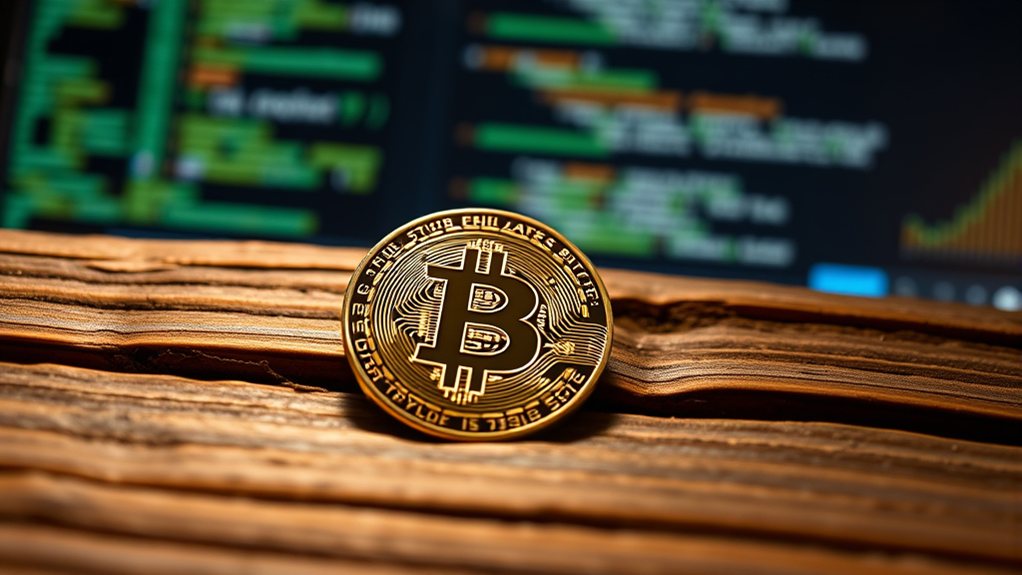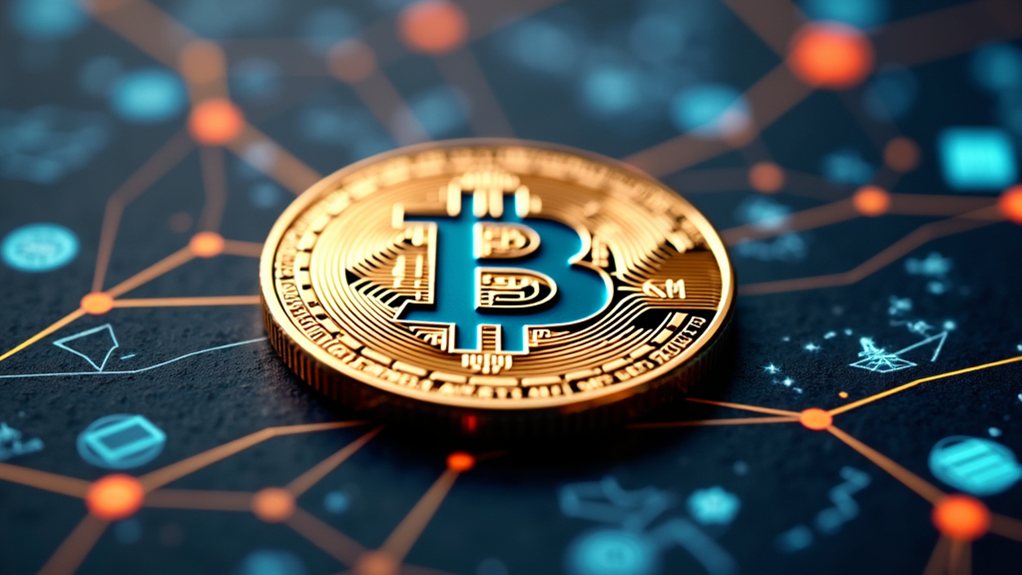Bitcoin was created by an anonymous developer known as Satoshi Nakamoto in 2008. The cryptocurrency launched on January 3, 2009, with the mining of the Genesis Block. It's a digital currency that operates without banks or government control. The first real-world purchase occurred on May 22, 2010, when someone bought two pizzas for 10,000 bitcoins. The technology behind Bitcoin has since sparked a financial revolution.

While many digital currencies have come and gone, Bitcoin remains the first and most famous cryptocurrency in the world. Its story began on October 31, 2008, when someone using the name Satoshi Nakamoto published a paper called "Bitcoin: A Peer-to-Peer Electronic Cash System." This paper outlined a new type of money that wouldn't need banks or governments to work. Instead, it would use a network of computers to keep track of transactions. Several concepts like bit gold and b-money influenced Bitcoin's development before its creation. Nakamoto's true identity remains unknown to this day, though numerous candidates including Craig Wright have claimed to be Bitcoin's creator but lacked conclusive evidence.
Bitcoin pioneered a revolutionary model of decentralized money, operating beyond the reach of banks and governments.
The Bitcoin network officially launched on January 3, 2009, when Nakamoto mined the first block of the Bitcoin blockchain, known as the Genesis Block. This block contained a hidden message referencing a headline from The Times newspaper about bank bailouts. The Genesis Block created the first 50 bitcoins, but due to a quirk in the code, these specific coins can never be spent.
Just a few days later, on January 9, 2009, Nakamoto released the open-source code for Bitcoin. The first Bitcoin transaction took place on January 12, 2009, when Nakamoto sent 10 bitcoins to programmer Hal Finney. Early supporters included cryptographers Wei Dai and Nick Szabo, who had previously worked on digital currency concepts.
Bitcoin remained mostly a curiosity until May 22, 2010, now celebrated as "Bitcoin Pizza Day." On this date, programmer Laszlo Hanyecz made the first real-world purchase using Bitcoin, buying two pizzas for 10,000 bitcoins. At the time, this transaction valued the pizzas at about $41. Those same bitcoins would be worth over $300 million by 2021.
The system that powers Bitcoin includes several important innovations. It uses a "proof-of-work" system where computers solve complex puzzles to validate transactions. New bitcoins are created through mining, with miners receiving rewards for their work. The initial reward was 50 bitcoins per block, but this amount cuts in half approximately every four years. As of 2021, the reward stood at 6.25 bitcoins. Bitcoin's total supply is limited to 21 million coins. The whitepaper introduced the revolutionary concept of a public ledger that transparently records all Bitcoin transactions while preventing double-spending.
Bitcoin's early years saw rapid developments and challenges. The first Bitcoin exchange, Mt. Gox, launched in 2010. By 2011, Bitcoin reached parity with the US dollar, and the controversial Silk Road marketplace began operating. In 2013, Bitcoin's price surged above $1,000 for the first time, creating its first major price bubble. The following year, Mt. Gox collapsed after losing 850,000 bitcoins to hackers.
Despite these early turbulences, Bitcoin's core technical innovations—its blockchain technology, decentralized network, and limited supply—have remained influential in the world of finance and technology. These features continue to attract users seeking alternatives to traditional financial systems.
Frequently Asked Questions
What Risks Do Bitcoin Investors Face?
Bitcoin investors face several major risks. The price can swing wildly up and down in short periods.
Security threats include exchange hacks, lost wallet keys, and scams. Regulations are changing and unclear in many countries.
Technical problems exist too, with slow transaction times and environmental concerns from mining. Unlike bank accounts, bitcoin holdings don't have government insurance if exchanges fail.
Can Bitcoin Mining Damage the Environment?
Bitcoin mining can damage the environment in several ways. It consumes massive amounts of electricity—comparable to entire countries like Poland.
This leads to significant carbon emissions, with one transaction creating over 735 kg of CO2. Mining operations generate e-waste and use substantial water resources.
While about half of mining uses renewable energy, the industry's overall environmental footprint remains concerning, requiring land area equivalent to the Netherlands for carbon offsets.
How Do Bitcoin Transactions Affect Traditional Banking Systems?
Bitcoin transactions are changing traditional banking by cutting out middlemen.
Banks now face competition as people can send money directly to each other with lower fees. This threatens banks' profits from transaction fees, especially in international transfers.
Banks are responding by investing in blockchain technology and developing their own digital currencies.
Cryptocurrency also opens banking services to people who don't have traditional bank accounts.
Are There Alternatives to Bitcoin Worth Considering?
Several alternatives to Bitcoin have gained popularity in the crypto market.
Ethereum offers smart contract technology for building apps.
Solana boasts faster transaction speeds at lower costs.
XRP specializes in international money transfers used by banks.
Cardano focuses on research-backed development with sustainability in mind.
Each alternative serves different purposes, with market caps ranging from $25.77 billion for Cardano to $238.77 billion for Ethereum as of February 2025.
What Regulations Govern Bitcoin Across Different Countries?
Bitcoin regulations differ widely across the globe.
In the U.S., the CFTC treats it as a commodity, while the IRS considers it property for taxes.
China's completely banned cryptocurrencies, but Japan recognizes Bitcoin as legal property.
Europe's approaching regulation through the MiCA framework.
Singapore requires licensing under its Payment Services Act.
Most countries are developing frameworks as Bitcoin's popularity grows, with international bodies calling for coordinated regulation.














